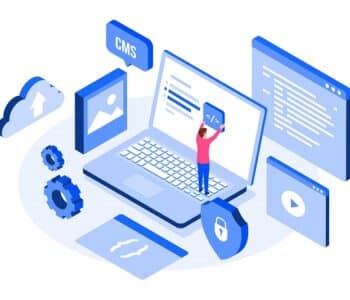 Software Industry
Software Industry Top 3 Indicators That Your Custom Software Should Scale
In today’s rapidly changing business landscape, adaptability is key to staying competitive. Custom software plays a pivotal role, streamlining operations and enhancing customer experiences. However, as a company expands, the software that once served it well may fall short.
One of the most telling signs that your custom software needs an update is an increased workload. The system may struggle to handle a surge in data, transactions, and user interactions, resulting in performance issues.
Scalability is another factor to consider. If your software can’t seamlessly grow with your business, it’s time for an upgrade to prevent costly redevelopment.
Integration is vital as well. New tools and technologies are adopted as your business grows, and outdated software may hinder smooth interactions between them.
Furthermore, evolving customer expectations, security and compliance concerns, performance bottlenecks, and maintenance challenges can all signal that your custom software is due for a refresh. Falling behind competitors due to outdated software can put your business at a significant disadvantage. To remain competitive, investing in up-to-date software that aligns with industry standards and customer expectations is imperative.
Here are the top three signs it’s time for your custom software to grow with your business.
Performance Bottlenecks and Slow Response Times
As your business grows, so does the volume of data and user interactions within your software. If you notice that your custom software is struggling to handle the increased load, this is a clear sign that it’s time to scale. Performance bottlenecks and slow response times can frustrate your employees and customers, leading to reduced productivity and potential customer churn.
Upgrading your software to handle a higher capacity will not only improve user experience but also allow your business to handle larger customer bases or process more data efficiently. Scalability is crucial to ensure that your software can cope with spikes in demand during peak seasons or as your customer base expands.
Inflexibility and Limited Functionality
As your business evolves, your needs change. Your initial custom software solution may have been perfectly tailored to your operations at the time of development. However, if it can’t adapt to new requirements, it becomes a hindrance rather than an asset.
Look for signs of inflexibility, such as an inability to integrate with other essential tools, difficulty in accommodating new features or workflows, or a lack of support for emerging technologies. When your software can’t evolve with your business, it’s time to scale it up. This might involve updating your existing software or developing entirely new solutions that align with your current needs and long-term objectives.
Security and Compliance Concerns
With data breaches and cyber threats on the rise, maintaining robust security and compliance measures is non-negotiable. As your business grows, so does the potential risk to sensitive data and intellectual property. Your existing custom software may no longer meet the security standards and compliance requirements needed to protect your organization and customers.
If your software is vulnerable to security breaches, lacks regular updates, or doesn’t adhere to industry regulations, it’s imperative to scale up your software to meet these challenges. This may involve implementing more advanced security features, compliance controls, and continuous monitoring systems to safeguard your digital assets and maintain the trust of your stakeholders.
Scaling your custom software is an essential step in keeping your business competitive and adaptable. Recognizing indicators such as performance bottlenecks, inflexibility, and security concerns will help you make informed decisions about when to upgrade or develop new solutions. By aligning your software with your business’s growth, you can ensure a seamless and efficient operation that supports your long-term success. Don’t wait for issues to become critical; be proactive in scaling your custom software to match your business’s expanding horizons.




























